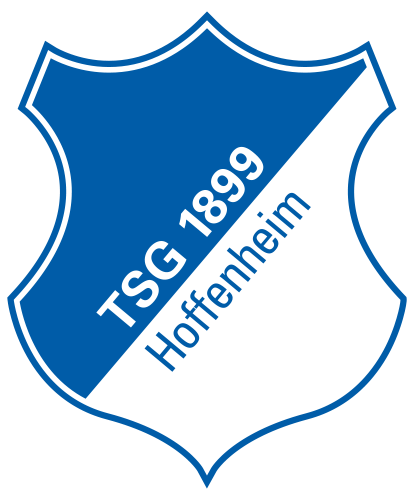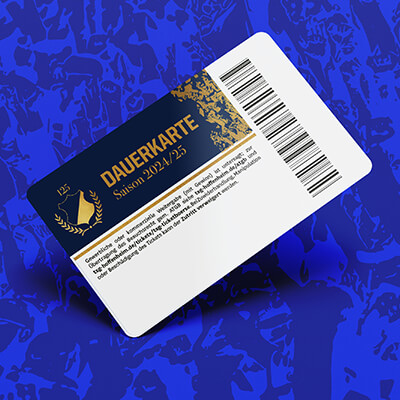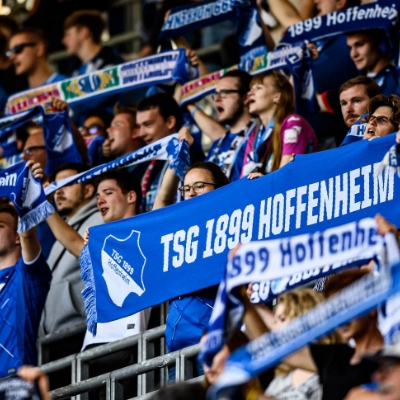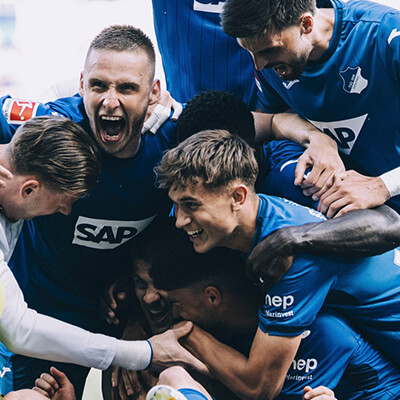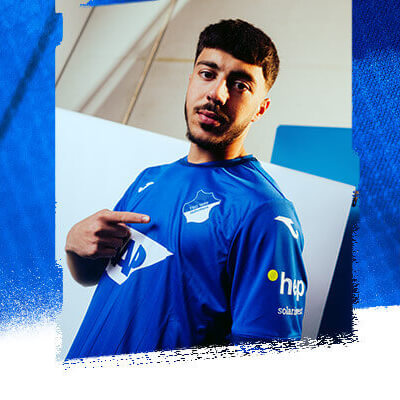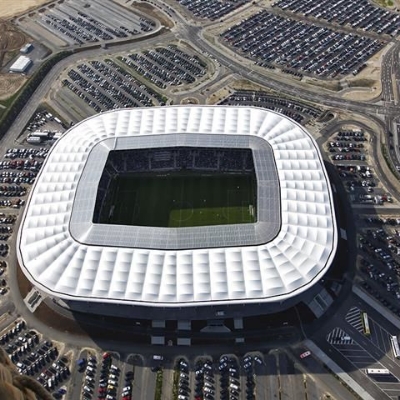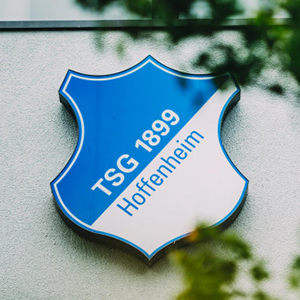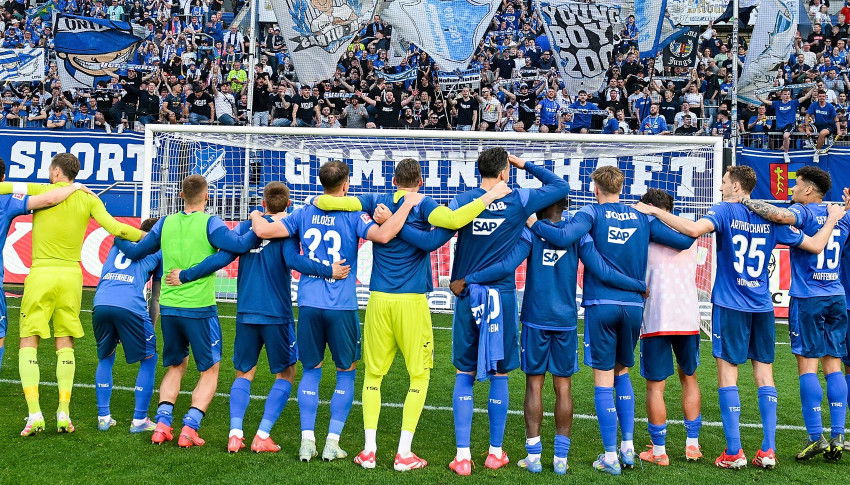Chris Richards: "I dream big"
Chris, you clearly feel at home here under the basketball hoop. Where does your love for the sport originate?
"My dad used to be a professional basketball player. That obviously had a strong influence. When I was growing up, basketball was always the big subject in our family. After I was born, my dad still lived in Australia for two years, but then he came back to us. Before that, he had already played in college, in Iceland and Bolivia. Of course, he still continued to be fascinated by it afterwards, and he taught me how to play. If it had been up to him, I would have become a basketball player too."
How did your everyday life look when you were younger, between basketball and football?
"I got up at 5 o'clock in the morning and went straight to basketball training. After that I had school and then basketball training again. Then I would run straight to football, before going home. When I was nine, I even did athletics - but that became too much for me." (laughs)
You don't just feel your intense relationship with the sport, but you can also see it. You have a tattoo of Kobe Bryant, and his nickname 'Mamba' is on your Instagram profile. Tell us what that's all about.
"He had this winning mentality within himself, which is something incredibly special. He always worked the hardest and was an absolute machine on the court. He never gave up. Even when he tore his Achilles tendon, he stepped up to the free throw line and sank both shots. You don't see that with every athlete. Unfortunately, he tragically died way too early, but I'm proud that I could experience at least a part of his career. He's a huge role model for me."
However, despite your family's background and love for basketball, you chose football. What was the main reason for doing that?
"I always played both sports over the entirety of my youth. When I was 16, we went on a trip to Argentina with my football team for a tournament. I fell in love with the atmosphere in the stadiums and knew from then on that I loved football more and wanted to focus on it."
Was your dad disappointed by your decision?
"He always had high expectations of me and saw that I had a lot of basketball talent. He was obviously a little bit disappointed, but he could understand that I wanted to do what I love. And he completely supported me in it."
You moved from Alabama to Houston when you were 16 to play football. Were you ever worried that it would be too large a step?
"I love my family and I couldn't be here today without their support. Of course it hurt, and I was homesick in the first few weeks. I'm a very family-oriented person. My brother was only three years old at the time and my sister nine. It was clear that I'd probably never live at home again. It wasn't an easy time, but they always supported me and encouraged me. That helped me to not have any big doubts."
Before you went to Houston, you were first rejected by FC Dallas after a trial. How did you feel after that?
"For me, the world collapsed. As a 16-year-old, I thought the world was over. But I received the offer from Houston shortly after. I knew that we would play against Dallas in the league, and I wanted to prove that it was a mistake to not take me on. And sure enough, after the game they got in touch and said that I should play for them the year after. In hindsight, that development was the best thing that could have happened to me."
Did you always have the goal of coming to play as a footballer in Europe one day?
"It was always my dream. But when I was growing up, there weren't many US players in Europe. There were maybe four or five that played a major role at bigger clubs. So I never really thought it would be realistic for me."
Nevertheless, you made it and moved from FC Dallas to FC Bayern München's youth setup when you were 18. Had you ever thought that would be possible?
"Definitely not. Dallas had made a partnership with FC Bayern. They then said that as part of an agreement, I could come to München to train for a week. Then after that week, the U19 coach took me aside and said I was welcome to come back. It was Sebastian Hoeneß. (laughs) At the time I thought it was just a few kind words, but a few weeks later I had to go to the sports director's office in Dallas. He then told me I could go to München if I wanted. I couldn't believe it and thought I was being set up. But it was actually true, and fortunately, I agreed to the adventure."
When did you realise that it was really happening?
"Firstly, on the plane. I sat there and thought to myself: 'You're flying to München now and won't see your family or friends for six months. You can't speak a word of German and basically know nobody. There's no turning back now.' But when the season started, I knew that I had made the right decision. I wanted to try everything to fulfil my dream of playing professional football. Fortunately, things went much better than expected."
Two years previously you were still playing for a small team in Alabama, and suddenly you were training with the pros from FC Bayern München.
"I never dared to dream that. As an American, you always dream big, but this big? Absolutely not. I had never played for a junior national team before, and I was even rejected by Dallas at first, then suddenly I was standing on the same pitch as players like Robert Lewandowski and Manuel Neuer. These were guys I'd only played with on a console beforehand. If someone had said that to me a few years ago, my family and I would have just laughed. It's crazy how fast everything played out."
The former coach of Bayern's U19s is also your current coach...
"Yes, Sebastian Hoeneß and I have a close relationship. He has always supported me. Both with the U19s and U23s in München, as well as here at TSG. That always gives you confidence as a player. He has played a big part in my development as a player. He trusts me on the pitch and lets me play. I am very grateful to him for that."
You're now on loan again until the end of the season. Have you already thought about your time after that?
"As a loan player, I think it's a normal process to have such thoughts in the back of your mind. For me, however, my priority is the here and now. That is all I can influence. I want to perform well at Hoffenheim and then we'll see what happens in the summer. It's clear that I've extended my contract at München, but everyone also knows that I feel incredibly comfortable here at TSG."
Regardless of the club: what do you want to achieve with your future?
"I don't define myself by titles. You obviously want to win trophies and be successful, but that's not my main incentive. I want to gain a lot of international caps for the USA. But my most important goal is to provide for my family. They have always supported me and spent their last dollar for me, so that I can fulfil my dream. When you're young, you don't really grasp the concept of money. But now I understand what my family have sacrificed for me so that I can play football. That's not normal and I appreciate it so much. I want to look after my family because I owe everything to them."
You talked about international games for the USA. What do you make of the development of football in your home country? Do you sense an increased interest in the sport?
"Absolutely. Every time I'm in the US with the national team, it gets even bigger. The stadiums and training facilities are probably even better than in most of Europe. The owners of the MLS clubs are investing a lot of money because they have also noticed that people are becoming more and more interested in football. I get messages from people who had probably never watched a single game of football in their lives beforehand."
The 2026 World Cup at home should give football in the USA another boost.
"Of course, and also from a sporting point of view. That's what we're working towards as a team. We're a very young team that will be in its prime in 2026. But we want to gain some experience at the 2022 World Cup first and play a good role. The qualifiers in November will be really important, so that we can actually be there in Qatar. We want to show the world how big football is in the USA, and that we're not afraid to dream big."
So, is the 2026 title your goal?
"There are obviously better teams at the moment, but why shouldn't we dream? We don't want to play at a home World Cup and lose. That is not our aspiration. We have a more than talented team, whose prospects are far from exhausted."
You also talked last season about wanting to win the Europa League title with TSG. Where does all of this ambition come from? Do you get more from the USA or München?
"I think both are a factor. Americans are used to being the best at almost everything. Whether it's basketball, American football, or the Olympics. Because of this, they want to be the most successful at everything. There is similar thinking at FC Bayern. You're the favourite in almost every game. It would be wrong to just play along half-heartedly. If we were to play in the Europa League again this season, my goal would be to win the title. That's who I am; it's in my DNA. When I'm in a competition, I want to win - I don't just want to take part. I dream big."



